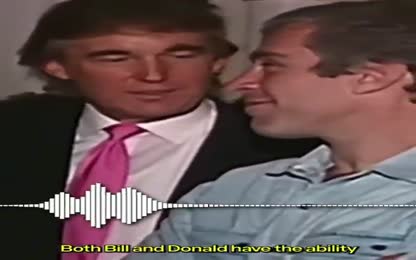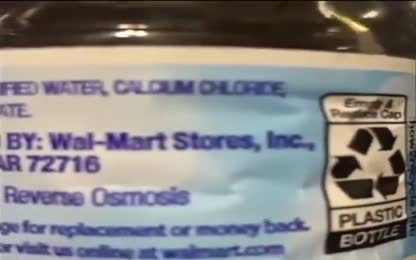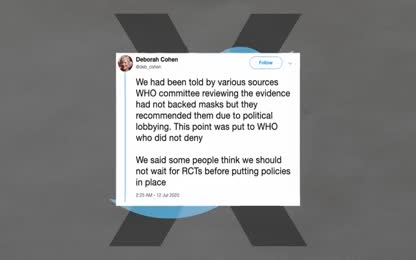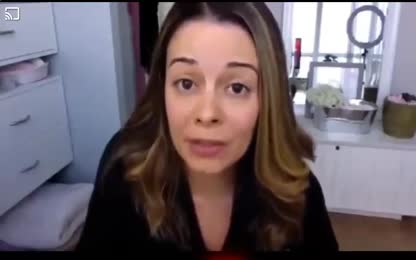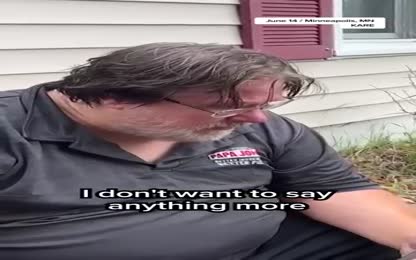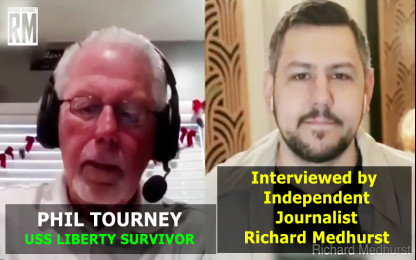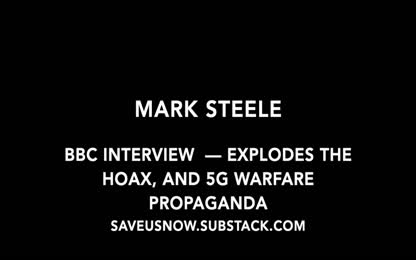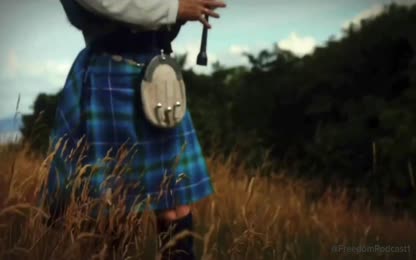Advertisement
Dr. Scott Jensen, MD - Full Interview - Planet Lockdown
Scott Jensen - Full Interview - Planet Lockdown
https://planetlockdownfilm.com/full-interviews/
Dr. Scott Jensen, MD
Present Positions:
President – Catalyst Medical Clinic, PA, Watertown, MN 2001-present
Clinical Associate Professor – University of MN Family Practice Dept. 1984-present
Pro Rehab Medical Director – Pro Rehab, Watertown, MN 2002-present
Staff Physician – Ridgeview Medical Center, Waconia, MN 1986 – present
Education:
1973-78: University of Minnesota, Twin Cities, B.A. Physiology (Magna Cum Laude & Phi Beta Kappa) 1978
1976-77: University of MN-Dental School
1977-78: Luther Seminary – St. Paul, MN, Reformation History Studies (non-degree program)
1978-1981: University of MN-Medical School, Doctor of Medicine 1981
1995: Eckerd Management Institute-FL, Foundations of Leadership Certificate 1995
1996-1998: University of MN Masters, Leadership for the Common Good 1997
1999: University of St. Thomas-Business, Mini MBA – Health Care Management Certificate 1999
Professional Training:
Internship
1981-1982: Bethesda Hospital, St. Paul, Minnesota (University of MN affiliate- Family Practice)
Residency
1981-1984: Bethesda Hospital, St. Paul, Minnesota (University of MN affiliate – Family Practice)
Bush Fellowship
1996-1999: Leadership and Policy Studies- University of MN Masters Program
1997-1999: Advanced Training in Dermatology & Plastic Surgery – Multiple MN clinics/hospitals
1999: Computers in Medicine-AEI
Board Certification by American Board of Family Medicine – Current to 2024
- Category: Pandemic/PlanDemic/ScamDemic,Exposing / Uncover,Virus Scare Back In The News,Research /Investigation/Report
- Duration: 51:01
- Date: 2021-06-23 23:11:21
- Tags: no-tag
5 Comments
Video Transcript:
хple shw m h h h h h h Halt! This is sort of a cool room. This is the mural here, the Gulf. And then you got Gulf, awesome around the world. This one here was used, I think in 1953 at the British Open. You're clearly a Gulf man, huh? Yes, I like Gulf. You got hats and a lot of grass from Jack Nicholson, Arnold Palmer, G.T. Rodriguez, this Palmer and Nicholas Tom Laman. I feel Michaelson, I think too. Death certificates themselves have no bearing on hospital reimbursement. I get a lot of questions about this and this one, someone said, I'm in some hospitals, monetarily, and incentivized to report deaths as COVID-19. No, it has to do with the diagnosis that's involved during the hospitalization. So when a patient's discharged from the hospital, whether it's back home or to the hospital, whether it's back home or to a nursing home, or if you will, to a funeral home if the patient died during the hospitalization, it's the chief diagnosis and the additional diagnoses that are on the hospital discharge form that determines whether or not the hospital would receive a monetary incentive for a Medicare patient. But the death certificate really has nothing to do with hospital reimbursement. So if I get a discharge summary like this from the hospital, that basically is going to tell me what was the admitting diagnosis and what was the discharge diagnosis. Like in this patient, the patient was admitted with a bowel obstruction, but also had esophageal issues, hypertension type 2 diabetes and lothiolite. Those were additional diagnoses and then the discharge diagnoses ended up being the same as the admission diagnoses. So this patient wouldn't qualify the hospital for a financial incentive because there was no COVID-19. But if on the discharge diagnosis it said COVID-19 respiratory illness or COVID-19 pneumonia or COVID-19 use 0.07.1, then they would have been able to qualify for that potentially. If it's the right kind of patient, it has to be a Medicare patient. I don't think it's followed play. I think that was there potentially decisions made to maximize access to these dollars. I think that that may well have happened. I think from what I have learned from hospital administrators that some hospitals were playing real close to the vest insisting on positive laboratory tests before a COVID-19 diagnosis was included. While other hospitals were willing to say we have epidemiologic evidence and we have subjective evidence and we have been told that if we have those two components identifying COVID-19 we can go with the diagnosis of COVID-19 even though we don't have the objective positive lab test. If a hospital in that situation is indeed putting down COVID-19 they would get potentially the COVID-19 financial spiff and in that way they would do financially better than if they had not utilized the COVID-19 diagnosis. It was April 3rd. It was a Friday. I was sitting at my desk and I was swamped that day. I was sick patients trying to keep up with what was going on in the Senate. I was flipping through emails and I scrolled down and clicked on an email from the Department of Health and was about to delete it when I saw something about vital statistics. I quickly opened it and I started reading it real quickly. When I got to the bottom of it where it seemed like it was coaching me to use COVID-19 as a diagnosis in situations that I wouldn't have used influenza or any other specific viral diagnosis without having tested for it. I was irritated. I could feel internally I was a little vexed. I left the email up and went and saw some patients and came back and read it again. My thought was damn it. That's not the way we should be doing things. I was struck me right away. I felt like I was being coached to go ahead and use COVID-19 without using the same standards of precision that I would for other things. If I'm going to make a diagnosis, I believe as a physician I have an obligation to use the tools available to me to nail it down with as much certainty as possible. It seemed to me that the Department of Health and the link to the CDC document that said that you could diagnose COVID-19 as a cause of death and a death certificate. It seemed to me that those two documents in tandem went against all that I had been taught or doing for the last 35 years. I'm a guy who grew up in a town of 3492 people in sleepy at Minnesota. I learned basic lessons. If your older sister is bigger than you, don't pick a fight. It's not going to end well. That a village can raise a child. If you think you can throw a snowball at someone and your mom's not going to find out within 24 hours, you're wrong. But I've had a chance to venture out and COVID-19 has pushed me forward. And for me, it has truly been a window into a much bigger appreciation. This is a big world, almost 8 billion people. And yet, I draw strength and contentment and joy by knowing that I don't stand alone. That even though 8 billion makes me very, very small in terms of my importance, it makes me very, very connected. Because there's 8 billion souls. And at the bottom line, we share the same fears and desires and wants and need for love. And COVID-19 is, if you will, heighten my appreciation of that. Welcome to the beach. This is a kids' room also. You can see the mobiles made out of pales and various icons from the sea. Sometimes when I walk in this room, I remember seeing film clips of thousands of people at the beach. It could be the Mediterranean, it could be Florida, it could be California. And in some of the pictures that I saw, people were wearing masks. And in some they weren't. But what struck me was that so many of those folks are being so sharply criticized for gathering and, quote, risking increased transmission of COVID-19 virus. It troubles me a little bit because it doesn't seem like we're being even handed. I've seen pictures of people demonstrating at rallies, shoulder to shoulder, thousands and thousands, with no masks, or perhaps a sparse number of masks. And that picture would be accompanied by a tagline more friendly about people are concerned about injustice. But there won't be the sharp criticism that they might be helping to contribute to killing grandma. I'm not interested in making a political statement about that as much as I'm interested in just asking the question. Can we be fair-minded? Can we step away from our own perspective and say, what is that other perspective? If we're going to have thousands of people gather here or here, is it fair that at a funeral, we can only have six to ten people. Is it fair that a church could be essentially closed? They don't have a thousand people. They've got people that are very responsibly socially distanced. These public policies that we're making. Are we being fair? We're going to get past this COVID-19 pandemic and when we do, there are going to be certain images etched in our minds. For me, it'll probably be the old man sitting in a chair in his nursing home room and his 60-year-old son sobbing on the other side of the pane of glass. Because he can't be with his dad as his dad dies. That image will be etched in my mind no differently than an X-ray would be etched of someone's chest. Everybody's going to have their own images that we hold on to. The image of a child here and another child here, both of them with plexiglass surroundings and masks and computers and a teacher never closer than six feet. For many, that will be the image. For some, the image will be the portable hospital in New York City waiting to help but not once ever receiving a patient. That, C, were the vessel, humongous in size, sitting there, never used. Or in Minnesota, we have a $7 million morgue that the governor purchased, a building to store the bodies because we wouldn't be able to handle it when we got to a thousand deaths a day in July. So, with the entire pandemic, Minnesota hasn't had two thousand deaths in seven or eight months. So, the governor has said, well, maybe we can use it to store something else. Everybody's going to have their own images. I hope that with time, our memories will somehow allow us to be charitable to our own images and to the images that others hold because there will have to be a healing process when we find to get through this. I'm giving you all kinds of metaphorical hooks. I should lock this up. That door over there goes into the car practice office. One of the things I believe we've learned from looking at the world around, and perhaps Europe in particular, is there have been things done with COVID-19 that should not be done again. Perhaps we have the right to say that it was a fluid situation in uncharted waters. I get it. But lockdowns, the cost to human life, to human mental health, to simply good people trying to provide for themselves and their families, the cost was enormous and we will not be able to measure it for literally years and years. We should not do another lockdown. It's house arrest, it's imprisonment. We can do many things. Virtually around the world, the United States included. We said that the two major goals in that first month of this pandemic were depress the peak, delay the surge, so that the second goal allow hospitals and healthcare facilities the opportunity and the time to prepare so that they would not be overwhelmed. What does that mean? Let's get ready to generate more ICU beds if we need to. Let's get more ventilators. Let's get more PPE. But let's make sure that if we depress the peak and delay the surge, that we can thereby achieve our second goal, which is to allow our healthcare capabilities to match with the demand. We didn't know what. We did that. And then the rules changed. The goals changed. The goal posts were moved. We were told, oh no. We've got to squash this virus. We've got to get the number of cases per 10,000 people or per million people or desperate million people. We've got to get it down to this number. That was never part of the deal. We have never taken on a pandemic that was, if you will, respiratory in nature, whether you're talking coronaviruses or influenza viruses or rhino viruses. We have never had the arrogance to think that we could squash it like a bug because we can't. So we've had myriad public policies put in place that have amounted to very little more than experimentation. We've done social distancing. A meter like many studies have indicated would be appropriate? No, six feet. And then we have people calling for 32 feet if they're behind someone who is exercising. We've had lockdowns. We've had school closures. We have absolutely sacrificed science and thrown it at the feet of panic and frenzy. We need to learn some tough lessons. I think we need to learn that we really can't take a crisis like this and turn it over to politicians, bureaucrats, academicians and intellectuals. We have got to have people with boots on the ground. I am talking about everyday infectious disease doctors. I'm talking about virologists. I'm talking about honoring the decades of work and science that have gone to contribute to our present understanding of virology, transmission, epidemiologic factors, efficacy of masks. We have let panic drive us. We've let politicians drive us not because of facts and science, but because it might fit their political narrative or their political quest. Folks. This is not going to be our last rodeo. We will have a pandemic soon enough again. We had one in 2009 and for years after that we were committed to doing better and we didn't. We have got to fire up a state of readiness. We have to go into these things with a certain sense of humility that we are in uncharted waters. That we will be in an area where we don't know what to do and it will feel like we are trying to dance through a field of landlines. But when we throw things on the wall, when we throw policies on the wall like mud to see what sticks. We better not forget that we are trampling on civil rights, constitutions, principles of democracy. That we may well see an arrogant expansion of government come about because you never want to let a good crisis go to waste. All of a sudden, legislative initiatives that should have been thoroughly vetted and the people that would live under those laws should have the right to contribute to the conversation. We should not allow those things to become the law of the land in some circumvented fashion and that's what's happened. And we should never allow group think to become such a powerful hammer that people are forced to abandon their own ability to think for themselves. It almost seems at times like there's been an effort, a coordinated effort, not a conspiracy, but a coordinated effort. To paralyze the people from thinking and expressing what they think. It's almost like all the tools of media and the power of promulgation of concepts and perspectives were brought to bear to bring about one thing. That's frightening. And I don't know that we'll ever be able to sort out whether or not that kind of coordinated effort was there or not. It's sure worth the effort. I'm not sure if we'll get the answers we want. In this room, we do a lot of testing. A lot of times we'll test hearing. We'll test the ability to cauterize and stop bleeding. I want to say something about tests. In the beginning of this pandemic, in the United States, the CDC dropped the ball. I think they acknowledged that some of the biggest champions of the Center for Disease Control have acknowledged that when the CDC's first endeavor to create its own test to diagnose COVID-19, when it failed because its tests were contaminated, it should have reached out to other countries that had already gotten passed where they were. Specifically, Germany had some very effective testing capabilities. But the CDC sort of dug its heels in and tried to go at it again. That cost us time. And that was valuable. But let's go back to the testing. We have had one air after another with testing. We've been using PCR testing, polymerase chain reaction testing, to identify who has the disease acutely. That's entirely different than drawing blood and looking for antibodies. That testing is called serology. And that's more like looking in the rearview mirror to see who's had the disease already. But let's get back to the PCR testing. The guy who discovered PCR techniques, he died a year ago, I think. But before he died, he said and made it very clear, this is not a technology to be used for diagnosing viral disease. This is a technology that can help us take a small strand of DNA material. And if you will, manufacture billions times more so we can work with it and learn. PCR testing really got its advancement during the 1980s and the HIV epidemic. As we desperately wanted to know what some of these DNA strands look like and were composed of. There have been numerous concerns that when we are looking for a snippet and then we cycle over and over again to see if we can get a positive test. That we've been doing this way beyond the norm. Good data has shown that if you are going to use the PCR technology to diagnose a viral disease acutely, that if you're past 25 cycles, you might get a positive test. But it will not be of someone who can transmit the disease. It will not be of someone who is infectious with that virus. It would sort of be like, if I took these earphones and I put them on your head and I gave you a noise at 20 decibels and you couldn't hear it. I'd bump it up to 25 and you didn't hear it. I'd go to 30 and 40 and 50 and you didn't hear it. If I get to 125 decibels, it's like you're standing next to a 747 taking off. And if you don't hear that, you are stone deaf. But if I keep jacking up the amount of decibels till I get the result I want, that isn't much of a measurement. I would never be able to say, well, John, you know, you heard this noise at 125 decibels. You got hearing this, okay. That would be silly. But that's what we're doing with cycling and cycling and cycling and allowing a threshold to be at 40 where we're into the trillions and trillions instead of at 25. And that's using a test whose technology is not even supposed to be used for this according to the original discover. And then we move to, if you will, antigen testing and we say, well, that's going to be okay. But we aren't up to speed on that. And then we have the CDC take its blood testing, the serology, and adding that data to its PCR testing and say, here's how many tests we've done. Well, that co-mingling of data has no place. And epidemiologists and virologists and infectious disease doctors around the country were a gasp that CDC would do such a thing. And when asked why they said, well, we didn't really realize that we were compromising the quality of the data and what we could learn from it. So when we look at testing, one of the questions you have to ask is, can we believe it? Is it reliable? Are these public health initiatives where they go into the community and offer free testing? And by the way, if you let us stick this swab up, you know, we'll give it $20. Are we gathering data that really should inform the public policies that are being created? We know that we've had a corruption of data in regards to COVID-19 deaths because the sequence of causation has not been held to the same standard. But then when we look at the testing and we say, we have the same problem, the corruption of the science that we thought or have allowed people to think was solid. It's not there. A few weeks ago, we had 77 NFL football players all tested for PCR. It shook the sports world. The next day, they were all tested again and they were negative. We have seen people basically suffer house arrest for 14 days because they had a positive PCR test. Now, some studies indicate that have an 85% likelihood that they never had transmissible infectious disease. This was no small thing. This was people's livelihoods and ability to pay the rent being decimated. We have had quarantine of healthy people who we need to continue to fuel our economy and our supply chains. We're at risk for running short of medications because our supply chains have been so weakened and they've been weakened because we've relied on tests that aren't reliable. And we're doing this for a disease that is ultimately going to have an infection fatality rate somewhere in the vicinity of some of the influenza epidemics we've experienced before that never even got on the radar screen. That's what we've done. This is my Senate button. This is what you wear when you go into the Senate. It's my ticket. Being in the Senate for four years has been a lot like going to medical school. It's a lot of baptism by fire. It's learning things that you never had any idea that you'd learn. For me, I would say the Senate taught me the five Ls. I thought about that. The most important thing I can do is the first two Ls. I have to listen and learn. There's no way I can be prepared to address the issues without those two cornerstones of listening and learning. To stakeholders, to voters, to people in the field, in the trenches. I don't care if you're talking about mining or foresting or manufacturing or medical device companies or pharmaceuticals or finance or banking. The next L has got to be about linking. It's more important to link this idea with this person or this person with this individual or this scientist with this manufacturer. Oftentimes, I was most effective if I could link people together or link causes together so that instead of letting people live in their own silos, I could say, let's step outside the silos and live right here and I think we can solve some problems. The next thing I had to do was I had to lead. For me, that often I needed to lead the conversation. I needed to lead even the hard conversations because they're crucial. Whether we're talking about a social issue that was creating a lot of intense emotions. The problem in politics, though, and the problem is the Senate, Senator, was that if I lead a conversation and some of my colleagues don't want that conversation to take place because it may make them take a position or express an opinion on the conversation we're having, they may not be happy about that. So oftentimes, leading on something so simple as moderating a dialogue became problematic, a source of friction. And then lastly is when I needed to step in and legislate because quite frankly, folks, we've got plenty of laws. I don't think the answer is going to come by doubling the quantity of laws we make each session. I think it's going to have more to do with listening and learning, linking and leading the conversations. And then if we need to, if we must, that's when we legislate. And hopefully we do so in a thoughtful way with both parties having influence so that we can come up with a product that everybody can live with. In the end, one of the mantras for me in my life has always been take a stand and make a mark. That actually came from John Jake's, the author who wrote a bicentennial series of books, eight books back in 1976 to celebrate the United States, birth and development and existence today. And the first book of that series was called The Bastard. And it was a young man born out of wedlock in England who came to America. And that fellow's name was Philip Kent. And repeatedly as we traced his life, the reader, he would be confronted with that phrase, take a stand and make a mark. So as a senator, I've tried to reflect courage and I've tried to reflect the spirit of kindness. And I've done so hoping that people weren't thinking that I was making some sort of transaction. Kindness and courage as a transaction are nothing. But if they're done without anything expected in return, they can change the world. And so to me, I've learned that in the Senate, the most important values I can live every day are kindness and courage and have no relationship whatsoever to some sort of transactional quid pro quo. I'm often asked, do I think that something is a foot? Do I think that something's not quite the way it seems in regards to COVID-19? I've never been one to dive into conspiracies. Maybe it's because I'm leave. Maybe it's because I choose to think that people want to do the best thing, the right thing, the good thing. But there's been enough that's gone on with COVID-19. And I think it's safe to say that there are agendas that are not being publicly shared, but they are being privately pushed. There are dollars moving in directions that we cannot trace. There are influences being negotiated, bought and sold, if you will, to accomplish things that I would hope no one would want to accomplish. COVID-19 shouldn't be a tool for financial gain, and it shouldn't be a tool to implement one's political agenda. COVID-19 should be about taking care of people, making sure we get through this, not allowing it to be an existential threat to humans, understanding that it's been a generational transformative experience that won't be forgotten. But if indeed some of these darker urges are being satisfied, God help us. Further horrors, outcomes unimaginable that something so absolutely vital to a democracy as trust being literally fractured for the rest of my lifespan. It's hard for us to come anywhere close to what we can be as humans if we don't have some basic level of trust in one another. If we have to literally search for dark shadows, boogie men, and bad people are on every corner. I don't know how we get motivated in the morning to get up and try to make the world a better place and leave the legacy of having improved the world at least a scotch. I don't think people realize that if we lose trust between one another, between our governments and citizens, we may not be able to walk this back. We may have to accept a new normal that is truly ugly for the human soul. When we get to the other side of this, I don't think anything's guaranteed. I think it's pretty clear that the world's not going to look like it did last year. We're seeing something that is far more transformative than many of our wars because this COVID-19 pandemic and all the associated machinations and the fiendish energies. This is bearing our souls to one another. This gets down to the very elementary idea of how can I deal with you the way I'd want to be dealt with. How can I love my neighbor as myself if I hold you in contempt because you saw the world differently than I did? At some level, it seems to me that the division, the fracture is that deep, that it'll be difficult for me to love you as my neighbor and as myself because you weren't with me and you tormented me. That's the real frightening piece. Humans weren't wired, aren't wired for that kind of dark divisiveness. We're actually supposed to be drawn to one another. I got an email last night at 11.30, calling into bed that I flipped through my phone one more time to make sure I was caught up. I was horrified to see a message say, urgent, and I opened the message up. In a 50-year-old friend of mine had been killed a few hours earlier in a car accident. There was no way I could be positive falling asleep last night. I had to pray that sleep might be a balm for the pain I was feeling. I think my journey over the last 18 hours of dealing with that terrible news can almost parallel what we're doing with COVID-19, which is a little bit more elongated. We're going to need some time to stay positive. I regard myself sometimes as a bit of a naive optimist, and I choose that because the alternative seems to me that I might tend towards being a jaded cynic, and that's not who I want to be. But COVID-19 is, it's challenged me to stay positive. There are days that the last thing I want to do is have one more conversation, one more question, one more answer about COVID-19. There are days I want to sequester myself with books and just live elsewhere. But that's not going to solve any problems either. I never thought I'd be in a situation where I could imagine what it might have been like to be in Guyana with Jimmy Jones in 1978. What must it have been like for those people to slowly, ever so slowly, give up their own ability to engage, beliefs, to think for themselves, to worship? What must it have been like for those people to incrementally move towards a place where, finally, they were willing to drink, cyanide-laced, coolate, their children and themselves, and perish? Sometimes I wonder if COVID-19 doesn't almost do the same thing to us. It's like we're in our out day in day out, week in week out, month in month out, one story after another, one piece of bad news after another, one more sensationalized headline. It's almost like we're slowly being beaten down until we get to a point where we say, Uncle, I give up. I'll drink the coolate. It feels like the normal responses we have to, terrible news whether it be death-ridden hurricanes or tornadoes, or 9-1-1, or war-torn countries with lots of dead soldiers. Somehow life seems to push us to somehow assimilate the news and somehow put one foot in front of the other. This COVID-cloud of melancholy that we live under isn't behaving that way. It's daily or hourly leaching out, some of the best of what we have to give to ourselves and to one another. That's why it's hard to wake up in the morning and feel joy. That's why it's hard to anticipate something that we might normally have anticipated with a lot of enthusiasm that's gone. I can't tell you how many patients I have come in and tell me, you know, Doc, I used to love the idea of, I was going to go fishing, I was going to go golfing, I was going to do this. The other day I called my buddies and said, I'm not going to make it. I just laid on the couch for four hours. To me that's probably the most frightening thing. Some of this COVID-19 is leaching away the best we have to offer ourselves and one another. That's why I get so angry inside to even think that there could be some sort of agenda that is being satisfied through collectileared global response to this pandemic. That's over the top miserable. News and facts blend with truth and accuracy in an odd equation. I don't think I will ever get over my disappointment with so many mainstream media sources. After this COVID-19 thing, this pandemic is over. The sensationalistic, doom and gloom chicken little sky is falling approach has been absolutely unbelievable. Here in the United States we are caught between the political fractionation of an upcoming election and it's almost the perfect stew for media sources to take COVID-19 and use it as a catalyst to absolutely paralyze humans from expressing their best within us. I think mainstream media collectively has served this party individually. I think there are thousands of examples where media sources were so outside any scope of decency. It's almost as if there was an office contest to see who would get the prize of coming up with the most jarring, angst producing, unsettling, saddening headline for the day. The print media has earned some of the disenchantment people hold toward it and that's not going to go away. This is our surgery room. This is where we put the spotlight on the lesion. We use the anesthesia and we start cutting. We created a mashroom, 4077. You might remember it was a TV series in America a long time ago and it captured I think viewers all around the world. In this room, physicians have to be more careful than ever to make sure that we respect and honor our patients. It's in this room or in a setting like this that we oftentimes have the power and without realizing it, the power we have is to, if you will, use fear to get patients to do what we think should be done. Sometimes that's almost impossible to avoid. But I'm very cognizant of how fear impacts the way we deal with one another. And I know that in politics and I think in this COVID-19 pandemic, we've seen this done this utilization of fear as a means of power and control too many times. And I spent some time thinking about it. And I came up with what I consider to be the fear formula that is so abused and too often used. It starts with the word fear. The F stands for what you've got to do is you've got to frighten people. And in order to frighten people, you need to go to the E in fear and you need to exaggerate facts, factoids. It doesn't matter how extreme they are. Exaggerate them and use them. And then the next step is to go to that A in fear and accuse others. Find a scapegoat. Direct some anger. And then the R in fear is repeated over and over again. At that point in time, you have frighten people utilizing fear to a point where folks might start to believe that they can't think for themselves, that they cannot adequately engage the situation. So then you move into the word formula to really make things work. So in the word formula, we look at the F and the F stands for fake news. Don't worry about being correct. Grab a piece of fake news here or whatever and if you will embellish it. Then you go to the O. What you want to do there is if you have any opponents, ostracism, marginalize them, make them so they seem small or silly. Then we go to the R. And in regards to the R, again, you do things like repeating so that goes over and over again. No relief in sight. Then you go to the M and it's important to massage the media, whether it's on social media or mainstream media, but massage and manipulate the media. And then the U comes along and the pledges of utopia to your listener. Tell them if they just go along with you, there will be a utopia. You night them. You night those who don't feel like they've been, if you will, invited to the party, invite them into your world of utopia that you can help them find. And then we go to the L. And the L stands for lead, late in the game. The later you lead, the less likely people will be able to target criticism at you. Your lies might be the last lies and they might be more readily accepted because so many lies beforehand have been laid bare. And then lastly, the A. Applied yourself. Run victory laps, even if you didn't earn them. When you use that fear formula, you will find that you oftentimes get the result you want. Medicine can be the same way. We can frighten people. We can embellish the facts. We can exaggerate the facts. We can accuse a colleague or a physician somewhere else or a clinic or a hospital somewhere else that they didn't do a good job. And then we can repeat it. And now we've got the patient sort of listening more to us. And then we can move through that formula. We can move through the whole thing with fake news and ostracize our opponents and repeat it over and over again. And massage the facts and promise the utopia, lead late in the game and then apply yourself. And you can get a patient to go to surgery. That shouldn't go to surgery. You can get a patient to have a procedure that if you actually look at the risks and the benefits, there's no way in the world they should have that procedure. A lot of patients don't know that when they have an angiogram, they may have a 1-2% risk of having an heart attack or stroke during the procedure. A lot of people when they get their crotted arteries cleaned out may not realize that some centers in which that procedure is done, holds a 3-7% stroke rate during the course of the procedure. This is tough stuff. I don't care who uses the fear formula. There's politicians, COVID-19 epidemiologists or physicians, we need to be careful of them. And patients need to be aware of it. Borders need to be aware of it. Citizens need to be aware of it. Because it's being used against us. That's my fear formula. I'm not afraid of the virus. I'm afraid of the virus. I'm afraid of the virus. I'm afraid of the virus. I'm afraid of the virus. I'm afraid of the virus. I'm afraid of the virus. I'm afraid of the virus. I'm afraid of the virus. I'm afraid of the virus. I'm afraid of the virus.









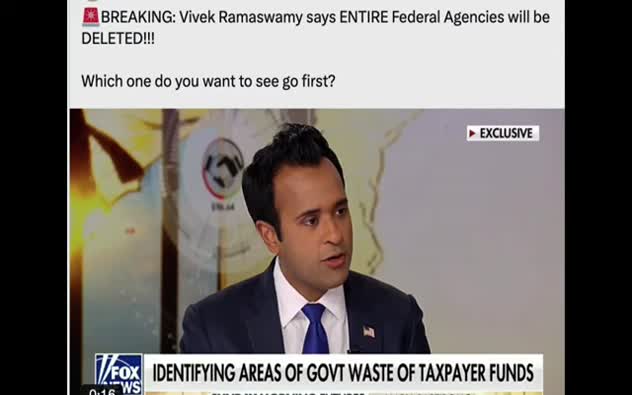
 Donate
Donate